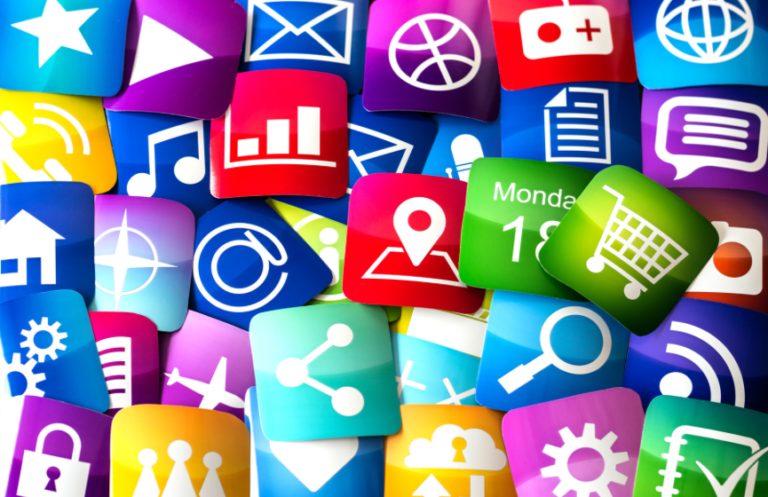List Five Computer Software Applications That You Use Regularly
Computer software has become a staple of daily life. It shapes how we work, communicate, and entertain ourselves. From business to personal use, software applications are essential tools that make everything run smoothly. Whether it’s for browsing the web or managing documents, we rely on software every day.
In this blog, we’ll answer the common question: what are five computer software applications that you use regularly? These software programs are simple, yet powerful. They help you get work done faster and make life easier.
Five Computer Software Applications That You Use Regularly
When you think about software, several types come to mind. These programs have become part of our daily routines, helping us perform various tasks. Here are the five essential software applications that many people use regularly:
Web Browser
A web browser is the most basic software anyone uses on a computer. It allows you to access the internet. Without a web browser, you can’t visit websites, use online services, or check your emails. Most people use web browsers every single day.
Popular web browsers include Google Chrome, Firefox, Safari, and Microsoft Edge. Each has unique features. Chrome, for example, is known for its speed and user-friendly interface. Safari is optimized for Apple devices, while Firefox is known for privacy features.
Web browsers are indispensable. They help you shop online, read news, check social media, and even work remotely. The browser is like your window to the entire online world.
Word Processor
A word processor is another software that many people use daily. It helps you create, edit, and format documents. Word processors are used for everything from writing letters to creating complex reports.
Microsoft Word is the most well-known word processor. It’s used by millions of people worldwide for both personal and professional tasks. Google Docs, a free alternative, allows you to create and edit documents online. It also lets multiple people work on the same document simultaneously, which is excellent for collaboration.
The features of word processors are what make them so useful. Spell check, grammar suggestions, text formatting, and template options all help make your writing easier. Whether you’re drafting an email or composing an essay, a word processor is the best tool to get it done.
Spreadsheet Software
Spreadsheet software is a must-have for anyone who works with numbers or data. These programs help you organize, analyze, and present data in a simple, clear format. Whether it’s budgeting, tracking expenses, or calculating figures, spreadsheets make it easy.
The most widely used spreadsheet software is Microsoft Excel. It’s known for its powerful features, including advanced formulas, charts, and pivot tables. Google Sheets is another option, and it’s free to use. Both Excel and Google Sheets are cloud-based, meaning you can access your work from anywhere.
Spreadsheets are great for both personal and professional use. You can track personal finances, plan your day, or create detailed reports at work. They are simple but versatile, making them a key tool for anyone who needs to work with numbers.
Presentation Software
Presentation software is essential for creating slideshows for meetings, conferences, or lectures. It helps you present your ideas in a clear, visual format. You can use text, images, graphs, and videos to make your presentation more engaging.
Microsoft PowerPoint is the most popular presentation software. It’s used by millions of people to create professional and polished presentations. Google Slides is a free alternative that allows you to create presentations online and collaborate with others in real time.
Presentation software is invaluable for communicating complex ideas. It helps simplify information and makes it easier for audiences to understand. Whether you’re preparing for a business meeting or a class presentation, this software is a must-have.
Email Client
Email is one of the most common forms of communication. An email client is the software you use to send, receive, and manage your emails. Without an email client, managing your inbox would be chaotic and time-consuming.
Popular email clients include Gmail, Microsoft Outlook, and Apple Mail. Gmail is widely used and offers great integration with other Google services. Microsoft Outlook is often used in business settings, while Apple Mail is a favorite among Apple device users.
An email client is not just for sending messages. It helps you organize your emails into folders, manage your contacts, and schedule appointments. Email clients also offer security features, such as spam filtering and encryption, ensuring your communication stays safe.
Why Are These Software Applications Important in Daily Life?
Each of these five software applications plays a crucial role in modern life. They help us stay organized, productive, and connected. Here’s why they’re so important:
Efficiency and Productivity
These applications help you complete tasks more quickly and efficiently. For example, a web browser lets you find information in seconds, a word processor allows you to write and edit documents faster, and a spreadsheet helps you organize data in minutes.
When you use these tools, you save time. This lets you focus on more important tasks, whether you’re working, studying, or managing personal projects. These software programs automate simple tasks, which leads to greater productivity.
Accessibility and Collaboration
These software applications are designed to be easy to use and accessible from any device. With cloud-based services like Google Docs and Google Sheets, you can access your files from anywhere, anytime. This is especially helpful for remote work and collaboration.
When working with others, these applications allow multiple people to work on the same file in real time. This feature is invaluable for teams, businesses, or even families sharing documents and ideas.
Security and Management
Email clients and web browsers provide security features that help you protect your data. For example, email clients often have spam filters and encryption features to ensure your communication stays private. Browsers have built-in security protocols to prevent malicious websites from accessing your personal information.
Spreadsheet software also offers security features. You can set permissions on who can view or edit your files, ensuring that sensitive data remains secure. These tools not only help you stay productive but also protect your work from security threats.
How to Choose the Right Software for Your Needs
Not all software is created equal. Some may work better for specific tasks, while others may be more suitable for personal use. Here’s how to choose the right software for your needs:
Identifying Your Requirements
Before choosing any software, think about what you need it to do. Do you need something for professional use, like Excel for data analysis, or something for personal tasks, like writing? Understanding your requirements will help you choose the best software.
For example, if you need to collaborate on a document with others, Google Docs might be the best option. If you need advanced data analysis features, Excel is the way to go. Identify your core needs and choose accordingly.
Free vs. Paid Software
Many software applications come in both free and paid versions. For example, Microsoft Office offers premium versions of its software, while Google Docs, Google Sheets, and Gmail are free. There are also free versions of some paid software that might suit your needs.
Free software is great for personal use or when you don’t need advanced features. However, if you need specialized tools, paid software often offers additional features and support. Consider your budget and needs before making a choice.
Customization and Integration
Some software allows you to customize it to fit your needs. For example, you can add extensions or plugins to web browsers to improve functionality. Similarly, email clients often allow you to integrate with other tools, such as calendars or task management apps.
Choose software that offers flexibility. If you need to adapt the software to fit your work style, look for programs that allow customization. This can increase efficiency and make the software even more powerful.
FAQ
- What is the difference between a web browser and an email client? A web browser is used to access websites and online content, while an email client manages your email communication. Web browsers let you surf the web, while email clients help you send and receive messages.
- Can I use free software instead of paid applications? Yes. Free software like Google Docs and Google Sheets provides excellent functionality for most users. Paid software might offer more advanced features but is not always necessary for everyone.
- What software is best for creating presentations? Microsoft PowerPoint and Google Slides are the most popular software for creating presentations. Both offer powerful tools for adding text, images, and animations to your slides.
- What are some alternatives to Microsoft Excel? Google Sheets is a great free alternative to Excel. There are also options like LibreOffice Calc and Apple Numbers, which are good for basic spreadsheet tasks.
- Why do I need a word processor if I can just use a text editor? A word processor offers more advanced features, such as formatting tools, templates, and grammar checkers. Text editors are basic and lack these helpful features.
Conclusion
The five software applications discussed here are integral to daily life. Whether you use them for work, study, or personal tasks, these programs are essential for staying organized, productive, and connected. From web browsing to email communication, they help make life easier.
Evaluate which software tools best meet your needs. With the right software, you can boost efficiency and tackle everyday tasks with ease.







